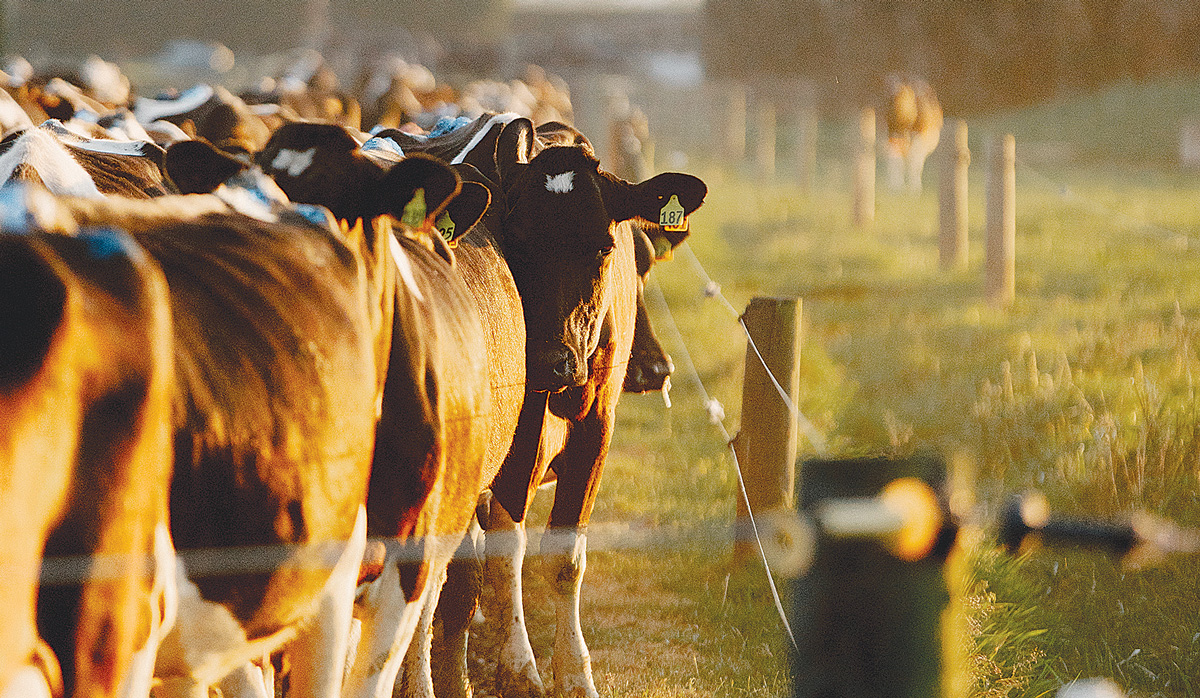LIC lifts half-year revenue on strong demand for dairy genetics
Herd improvement company LIC has posted a 5.2% lift in half-year revenue, thanks to increasing demand for genetics.
Outgoing LIC chairman Murray King says the time is right to pass the baton to the next generation.
King, who steps down from the role later this year, has chaired the farmer-owned genetics company for 11 years. He joined the board in 2009.
But King's connection with LIC goes beyond his board tenure. He served on the Shareholders Council and worked as a LIC AB technician before that.
"It's been a fantastic journey and a most enjoyable one," he told Dairy News.
"We are a genetics company, and every generation is better than the last one. So, if you believe in genetics I should get out of the way and let the next generation come through."
King says that LIC has been around for ove 100 years and done a lot for the dairy industry.
"I think we often forget how much we have achieved. Year by year we think we are not making progress but in the long term if you look at it, we are doing things now you wouldn't have thought possible many years ago," he says.
He points out that 20 years ago, LIC was inputting data manually, herd records were sent backwards and forwards after herd texts for input into Minda. These days, farmers have apps on their mobile phones.
"Farmers are working around the paddock and making decisions on the spot, looking at animals and entering dates - that stuff is quite revolutionary," he says.
Real advances have also been made with herd testing.
LIC collects about 11 million milk samples from farms every year and until now the samples have been manually tested. The tests, done four times a year on farms, help farmers judge the performance of each cow and also test the disease status of each animal.
LIC has been doing the work for the last 50 years. After many years of trying, LIC installed robots to do the task two years ago.
 |
|---|
|
LIC collects approximately 11 million milk samples from farms every year. |
"Now robot automate the weighing and sampling process at our Hamilton and Christchurch laboratories," says King.
King pays tribute to LIC's workforce for their passion in serving farmers and the dairy industry.
"At the end of the day, it's a team effort. It's more than one person."
King has dairy farms in North Canterbury and Nelson and won't be sitting idle - there's work to be done on the farms. He is also a cornerstone shareholder in Appleby Farms Ice Cream and serves on the board of Waimea Community Dam Ltd, Waimea Irrigators and Cawthron Institutes.
Corrigan Sowman, a farmer director on the LIC board, has been appointed chair-designate and will succeed King at the conclusion of the annual meeting.
Chief executive David Chin said King's long-serving contribution will leave a lasting legacy at LIC and in the wider dairy sector.
The Meat Industry Association of New Zealand (MIA) today announced that Chief Executive Officer Sirma Karapeeva has resigned from the role.
The winners of the 2026 Hawke’s Bay/Wairarapa Dairy Industry Awards were announced at the annual awards dinner held at Copthorne Solway Park in Masterton on Thursday evening.
Environment Southland is welcoming this week’s decision by the Environmental Protection Authority (EPA) to approve the release of Blaptea elguetai, a leaf‑feeding beetle that will help control the highly invasive Chilean flame creeper.
This March, the potato industry is proudly celebrating International Women’s Day on 8 March alongside the International Year of the Woman Farmer, recognising the vital role women play across every part of the sector — from paddocks and packhouses to research, leadership, and innovation.
Fruit trader Seeka posted a record profit and returns to shareholders in 2025.
Recent weather events in the Bay of Plenty, Gisborne/Tairawhiti, and Canterbury have been declared a medium-scale adverse event.
OPINION: Staying with politics, with less than nine months to go before the general elections, there’s confusion in the Labour…
OPINION: Winston Peters' tirade against the free trade deal stitched with India may not be all political posturing by the…